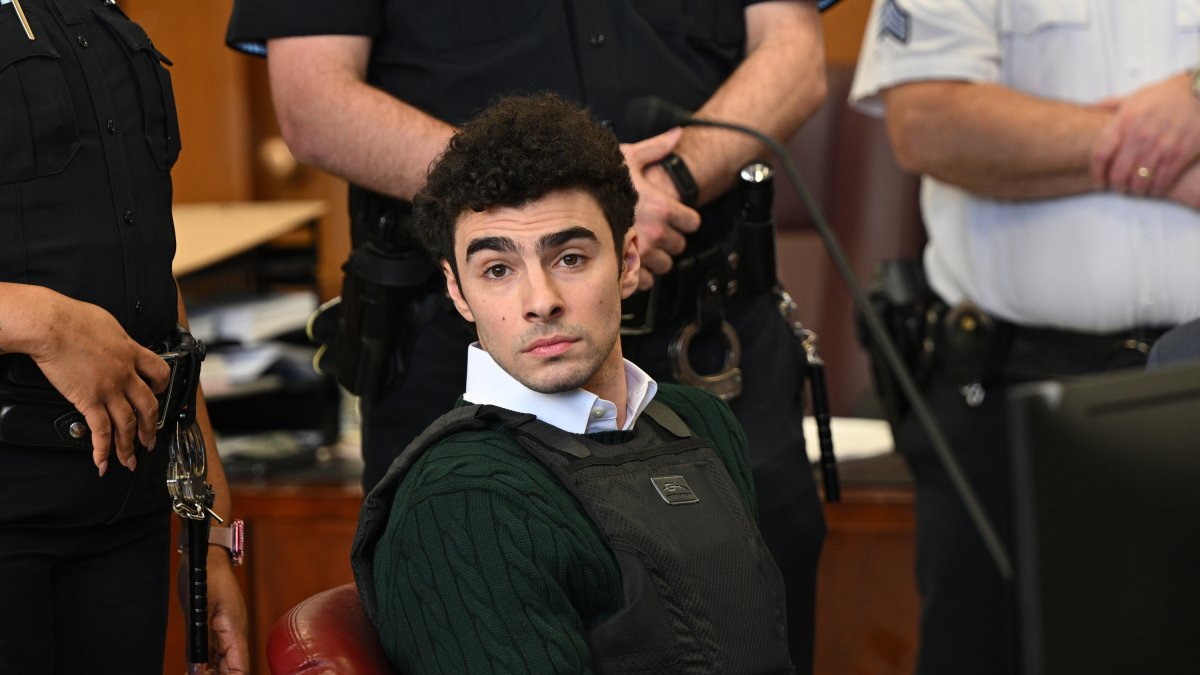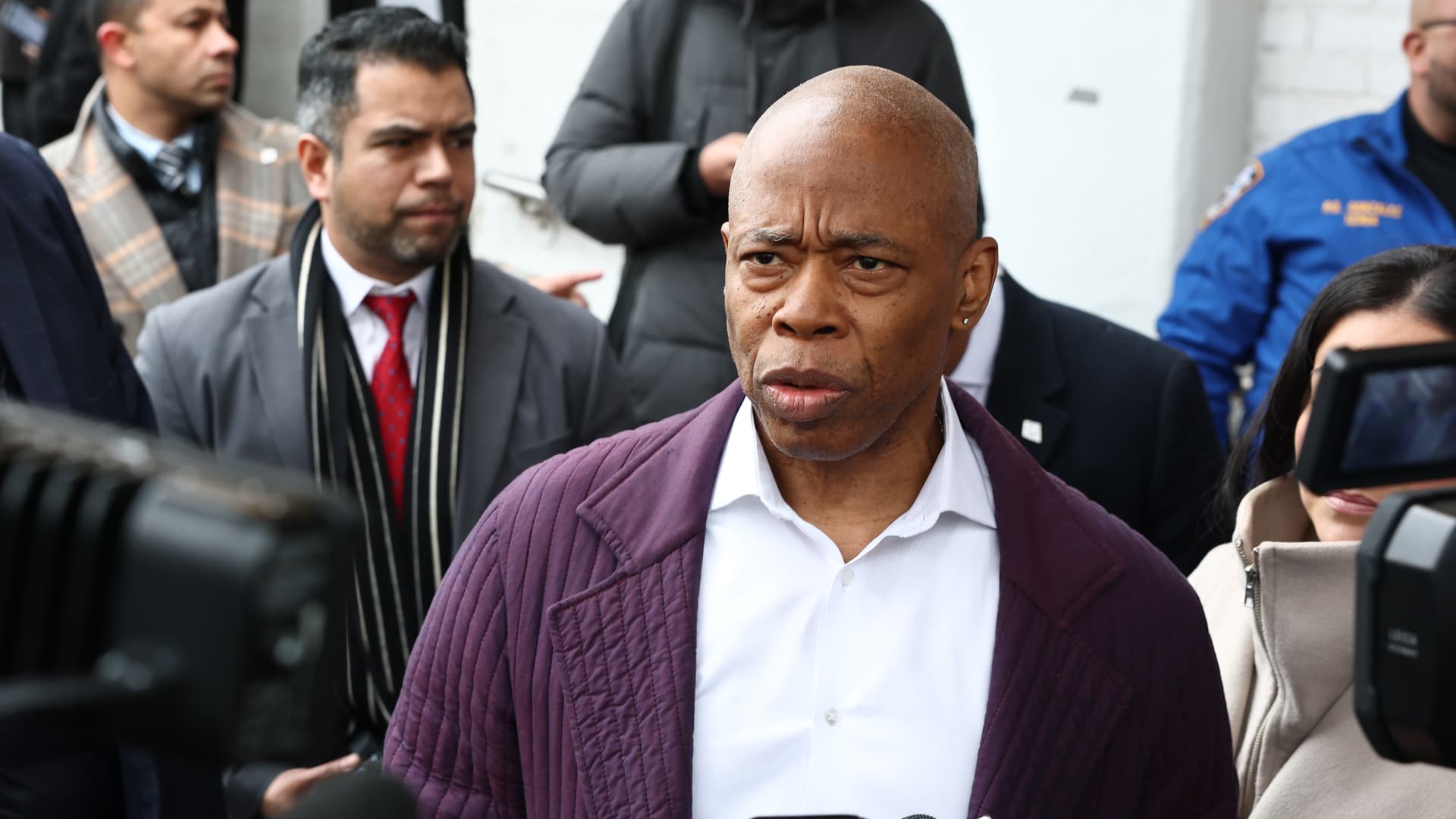Death Row Drama Unfolds: Prosecutors Fight to Uphold the Law Against Mangione
A chilling tale of murder, betrayal, and the quest for justice is unfolding in a New York courtroom. At the center of the drama is Mangione, a defendant fighting for his life against the backdrop of a gruesome crime. As the stakes reach a boiling point, prosecutors are now taking a firm stance against Mangione’s bid to block the death penalty. In a recent development that’s left many wondering about the future of justice in New York, prosecutors have asked the court to deny Mangione’s request, setting the stage for a potentially explosive showdown.

The Defense Strategy and Concerns

Defense attorney Karen Friedman Agnifilo approached the case with a focus on ongoing talks with federal prosecutors regarding the potential death penalty. She expressed concerns that procedures have not been followed and that Mangione’s constitutional rights were violated during his arrest in Pennsylvania.
Agnifilo claimed that in an HBO documentary, New York City Mayor Eric Adams had discussed evidence that hadn’t been given to the defense. She also argued that Mangione’s attorneys “asked for three months to prepare a fulsome mitigation submission to the Department of Justice’s Capital Committee and was ignored.”
Jury Nullification
One of the concerns raised by Agnifilo is the potential for jury nullification. She argued that the political context of the case, including Attorney General Pamela Bondi’s comments, could prejudice the jury and impact the outcome of the trial.
Furthermore, Agnifilo claimed that Bondi’s comments on social media, including a post stating that Mangione is guilty, could influence the jury’s decision. She requested that the court require jurors to be screened from Bondi’s prejudicial public statements.
Constitutional Rights Violations
Agnifilo also raised concerns about constitutional rights violations during Mangione’s arrest. She claimed that officers seized his belongings during his arrest in Pennsylvania, which she believes violated Mangione’s rights.
As the defense team continues to prepare for trial, Agnifilo’s concerns about jury nullification and constitutional rights violations highlight the complexities of the case and the importance of ensuring a fair trial.
Broader Context and Implications
The case has significant implications for the justice system and society at large. The decision to seek the death penalty is often a highly politicized issue, and the case has sparked heated debate about the morality and effectiveness of capital punishment.
As the trial approaches, it is essential to examine the broader context of the case and its implications for the justice system. The case highlights the complexities of the intersection between criminal justice and politics, and it is crucial to consider the potential consequences of the decision on the defendant, his family, and society as a whole.
Significance of the Case
The case is significant not only for its potential impact on the defendant but also for its potential implications for the justice system. The decision to seek the death penalty is a highly charged issue, and the case has sparked heated debate about the morality and effectiveness of capital punishment.
As the trial approaches, it is essential to consider the potential consequences of the decision on the defendant, his family, and society as a whole. The case has significant implications for the justice system and society at large, and it is crucial to examine the complexities of the issue in order to make informed decisions.
Conclusion
Conclusion:
The recent development in the Mangione case, where prosecutors are urging the court to reject the defendant’s bid to block the death penalty, marks a pivotal moment in the ongoing legal saga. As outlined in the article, Mangione’s defense team has been fighting to exclude certain evidence, arguing that it was obtained through coercive means. However, the prosecutors contend that this evidence is crucial in building a strong case against Mangione, who is accused of committing heinous crimes. The court’s decision will have far-reaching implications for the case, with potential consequences for Mangione’s fate.
The significance of this case extends beyond the individual defendant, as it raises important questions about the application of the death penalty in the United States. The death penalty remains a contentious issue, with proponents arguing that it serves as a deterrent to crime, while opponents claim it is an inhumane and ineffective means of punishment. The Mangione case highlights the complexities and nuances of this debate, as the court navigates the delicate balance between upholding justice and protecting the rights of the accused. As the court deliberates, the nation watches with bated breath, waiting for a verdict that will shape the future of capital punishment.
Ultimately, the outcome of this case will have a lasting impact on our society, influencing the way we approach justice, morality, and the value of human life. As we move forward, it is essential to engage in a thoughtful and nuanced discussion about the death penalty, considering the perspectives of all stakeholders involved. Will the court’s decision send a message that the death penalty remains a viable option, or will it mark a turning point in our nation’s approach to capital punishment? The world waits with anticipation, as the fate of Mangione hangs in the balance, serving as a poignant reminder of the gravity and complexity of the justice system.